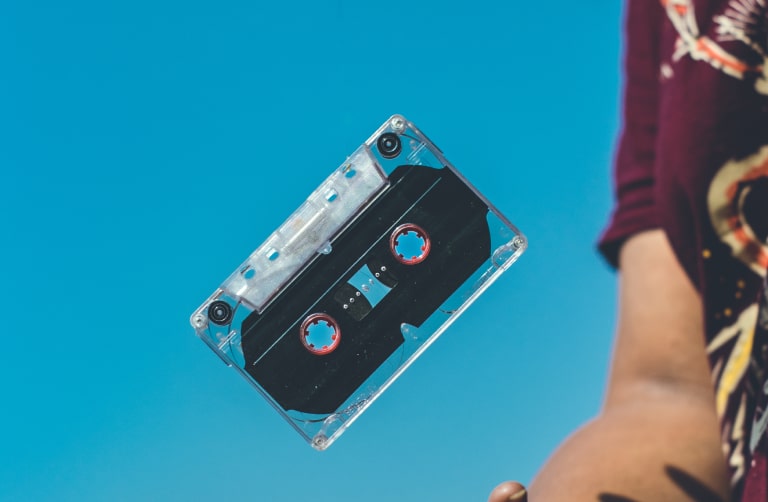Have you ever noticed that music seems to have a faster pace when you listen to it at night? It’s a curious phenomenon that has puzzled music enthusiasts for ages. Join us to delve into the science behind why music might sound faster at night. We’ll explore the journey of sound, how our brain processes it, and the intriguing ways in which music can alter our perception of time.
Get ready to uncover the secrets behind this intriguing auditory experience!
The Science of Sound and Perception
To understand why music might sound faster at night, let’s first explore the basics of sound and how our brain processes it. Sound is created by vibrations that travel through a medium, such as air, and reach our ears. When a source, like a musical instrument or a speaker, produces sound, it generates sound waves that propagate through the air. These waves consist of compressions and rarefactions, creating a pattern of alternating high-pressure and low-pressure regions.
Our ears play a crucial role in receiving and converting these sound waves into electrical signals that our brain can interpret. The outer ear collects the sound waves and channels them into the ear canal. Then, the sound waves reach the eardrum, causing it to vibrate. These vibrations are transmitted to the three tiny bones in the middle ear: the hammer, anvil, and stirrup. The movement of these bones amplifies the sound vibrations and transfers them to the fluid-filled cochlea in the inner ear.
Within the cochlea, the sound vibrations cause tiny hair cells to bend. This bending generates electrical signals that are transmitted to the auditory nerve, which carries the signals to the brain. The brain, specifically the auditory cortex, processes these signals and interprets them as the sounds we hear.

Music’s Impact on Time Perception
Now that we have a basic understanding of how sound travels and how our brain processes it, let’s explore how music can influence our perception of time.
The Power of Tempo
Tempo refers to the speed or pace of a piece of music. It plays a significant role in shaping our experience of music and can influence our perception of time. Have you ever noticed that fast-paced songs seem to make time fly by, while slow and melodic tunes can create a sense of elongated time? This is because the tempo of music can affect our internal sense of time.
Studies have shown that when we listen to music with a fast tempo, our brain’s internal clock tends to speed up. This synchronization between the tempo of the music and our internal clock can make us perceive time as passing more quickly. On the other hand, slower music can have the opposite effect, making us feel like time is slowing down.
Mood and Music
Another crucial factor in our perception of time while listening to music is our emotional state. Music has the remarkable ability to evoke emotions and influence our moods. When we are in a positive and upbeat mood, time tends to fly by. Similarly, when we are immersed in music that resonates with our current emotional state, time can seem to speed up.
For example, imagine attending a live concert with your favorite band. The energy, excitement, and joy in the air can make the music feel like a whirlwind, causing time to pass in the blink of an eye. Conversely, if you’re feeling melancholic and listening to slow, contemplative music, the elongated melodies and reflective lyrics can create a sense of time stretching out.
External Factors: Shaping the Nighttime Soundscape
While the tempo of the music and our emotional state play significant roles in our perception of time, external factors can also influence how we experience music at night.
Light Exposure and Circadian Rhythms
Our perception of time is closely tied to our circadian rhythms, the internal biological processes that regulate our sleep-wake cycle. These rhythms are influenced by external cues, such as light exposure. Light acts as a powerful signal to our brain, informing it about the time of day and helping to synchronize our internal clocks.
The Influence of Alcohol
Alcohol is known to have a significant impact on our brain and cognition. When consumed in moderate amounts, it can induce relaxation, alter mood, and even distort our perception of time. Many people enjoy listening to music while having a drink, and this combination can create a unique experience.
Alcohol has the ability to affect the brain’s perception of time, making it feel either slower or faster. While the exact mechanisms behind this effect are not fully understood, it is believed that alcohol’s impact on neurotransmitters and neural activity plays a role. When combined with the already influential factors of tempo and mood in music, alcohol can further enhance the perception of music as faster at night.

The Real Science Behind Music’s Speed at Night
So, does music truly sound faster at night? The answer lies in the complex interplay of various factors. While music itself doesn’t change its tempo or speed based on the time of day, our perception of it can be altered by several elements.
The tempo of a song, the listener’s mood, and the external factors of light exposure, circadian rhythms, and alcohol consumption all contribute to our experience of music at night. The synchronization of the music’s tempo with our internal clock, combined with our emotional state and the relaxed nighttime ambiance, can create a subjective perception of music as faster.
It’s important to note that this phenomenon is subjective and may vary from person to person. Factors such as individual preferences, cultural influences, and personal experiences also play a role in shaping our perception of music’s speed at night.
Conclusion:
The age-old question of whether music sounds faster at night can be answered by understanding the science behind sound, perception, and the influence of various factors. Music’s tempo, mood, light exposure, circadian rhythms, and even alcohol consumption all contribute to our perception of time while listening to music.
So, the next time you find yourself tapping your feet to the beat of a song in the darkness of the night, remember that it’s not just the music, it’s the fascinating interplay between science and our subjective experience of time!